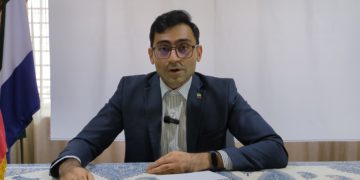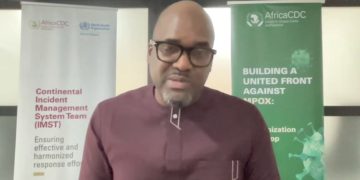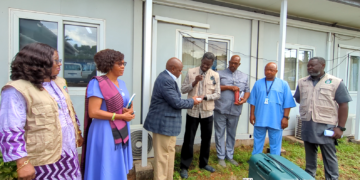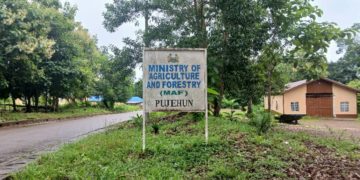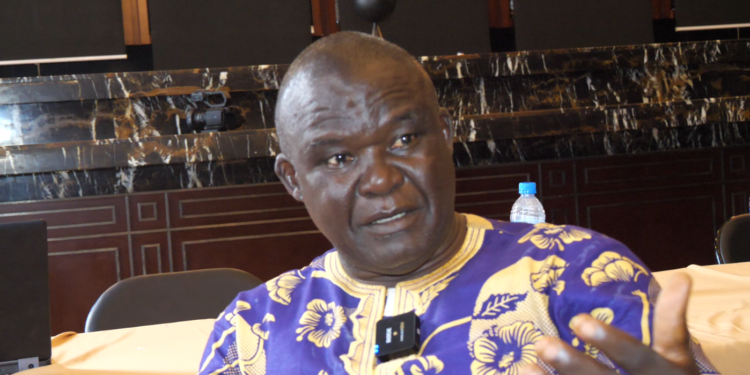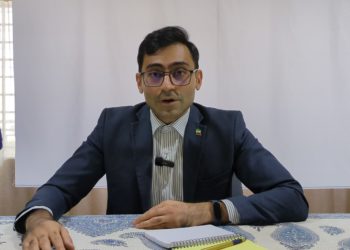By Kemo Cham
Njala University Professor Roland Suluku, has challenged fellow academics to embrace research to advance knowledge that can spur development.
The Associate Professor and Animal Science expert said most universities across Sierra Leone are offering archaic subjects that add no value to the body of knowledge, which he believes is holding back growth.
“If you go to most universities now, the same thing they taught me when I was in school in (the) 1980s, that’s what we are teaching, and that’s not going to make research work,” Suluku said in an interview on the side line of a training on scientific writing organized by the African Field Epidemiology Network (AFENET) and the Sierra Leone Journal of Biomedical Research (SLJBR) and other partners.
SLJBR, the only accredited academic journal in Sierra Leone, is the publication of the College of Medicine and Allied Health Sciences of the University of Sierra Leone. But like many other journals in the country, it has struggled for the most part since its establishment to maintain an appreciable level of publication, due to paucity of locally generated research papers.
Majority of the manuscripts published in the journal come from non-Sierra Leonean authors. And the editorial board, headed by Prof. Alhaji Umar Njai since 2019, has been working on changing this situation in the last two years. The collaborative scientific writing and peer review workshop organized in mid-July was an initiative designed to enhance the capacity of junior researchers in writing scientific papers.
Prof. Suluku, who is the Head of the Animal Science Department at Njala University, has been a reviewer for SLJBR for the last three years. He reviewed four of the 13 manuscripts presented by participants of last week’s training for consideration for the upcoming edition of the journal. He said he was impressed about the potentials of the new crop of writers given the quality of the papers he reviewed.
But he is concerned about the future, as many “top brass” professors are disinclined to mentor students interested in research and publication, yet they frown at writers who publish in predatory journals.
Predatory journals are unofficial publications that do not usually follow the strict procedure of accredited ones.
Suluku, one of the foremost authorities in animal science in Sierra Leone, did part of his studies at the University of Ibadan in Nigeria. He recalled that they had 460 professors at the time, noting that all their publications were done in departmental journal.
“In Njala University, they will tell you about predatory journal. If I don’t know how to write, am I going to write in the Lancet?” he said, stressing that everyone with the interest should be allowed to publish.
Prof. Suluku wants government, through the Technical Education Commission (TEC), to demand for research and publication of data from universities in return for the subvention it gives to universities.
While acknowledging that not every PhD holder will publish, he said those who prefer teaching should be given more subjects to deal with, while the rest are bounded by a policy that requires them to “publish or perish.”
“You have people who have graduated as PhD holders for over 10 years, 15, 20 years, they have not even crossed Freetown. What are they teaching in the university, when there is no research?” he bemoaned.
According to Prof. Suluku, because they do not engage in research, lecturers are fixated on government for their salaries and allowances, which has led to recurrent strike actions.
“We should graduate more researchers. If we have more researchers, we don’t need to go around striking for salary, because every lecturer will be having money from those things,” he said.
But for this to happen, Suluku says government must also create the enabling environment by, for example, providing research funding to universities. He also suggested for collaboration between government ministries and universities, which could allow lecturers to move out of their environment and learn new things.
“There are scholarships coming to this country, they should let teachers get them. If you go to other universities, they have gone out three months, six months. The minds of the lecturers are renewed,” he said.
“So I am appealing to the government and whoever may hear this, even the industries, come to the universities. If you want to establish a mining company, come to the universities, the environmental department, let them do the environmental impact assessment, using our students, so that by the time a student is graduating, he knows what is going on out in the field. But now we are graduating masters, they don’t even know research, because those facilities are not there,” he said.

